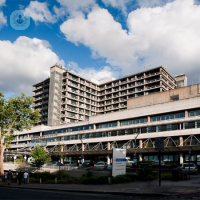Alcoholism
Professor Kevin Peter Moore - Hepatology (liver specialist)
Created on: 12-29-2015
Updated on: 06-23-2023
Edited by: Aoife Maguire
What is alcoholism?
Addictions to toxic substances are chronic diseases that affect the brain and behavior, characterised by the dependence on one or more drugs which are harmful to the body: in this case, alcohol. Alcoholism may also be known as alcohol abuse, alcohol dependence, or alcohol use disorder.

What are the symptoms of alcoholism?
Indicators of alcohol misuse or alcohol addiction are as follows:
- A need or desire to drink which takes complete priority above other desires
- An inability to control drinking habits or the amount consumed
- Experiencing withdrawal symptoms when not drinking
- Continuing to drink despite harm being caused to the body or in spite of harmful consequences
- Putting alcohol consumption first, rather than taking part in other activities
In others, you may notice changes in behavior or habits which could indicate they have issues with alcohol or a dependence on alcohol. Signs to watch for include:
- Not being able to refuse a drink
- Being regularly intoxicated
- Increasing alcohol consumption to feel the same effects as before (alcohol tolerance)
- Looking tired or unwell
- Being irritable
- Hiding things, or becoming secretive
- Lying about drinking habits
- Becoming more withdrawn or not showing an interest in activities which previously appealed
What are the causes of alcoholism?
Currently, there is no common cause, but there are several important factors which may contribute to how someone develops an alcohol dependence. For example, a person with an alcoholic father or mother is more likely to become an alcoholic themselves. Another cause is related to psychological factors, such as conflict in interpersonal relationships, a need to relieve anxiety, depression, or low self-esteem.
What are the effects of alcohol on the body?
Alcoholism can affecr both the body and mind. Drinking alcohol excessively can lead to several health risks such as alcoholic liver disease, cardiovascular disease, high blood pressure, strokes, chronic pancreatitis, pancreatic cancer, and a higher risk of developing breast cancer and throat cancer.
It is estimated that 9% of men and 3% of women are alcohol dependent. If you have an alcohol addiction, you may find that drinking has become an important factor in your life and you may feel unable to function without it
Can alcoholism be prevented?
Providing young people with information on alcohol and its dangers, and supplying them with social tools such as how to refuse alcohol or cope with peer pressure, can play a role in alcohol awareness and prevention. Projects among the wider community try to reinforce the idea that drinking should not be a pastime or habit, and reinforce the idea of drinking only being a norm for those over the age of 18. It is difficult to prevent alcoholism but encouraging a healthy relationship with alcohol and teaching about the warning signs of alcoholism can go a long way to prevent both underage drinking and alcohol abuse.
If you are worried that a loved one or a friend is showing signs of alcoholism, it can be difficult to approach as a subject, but it is important to recognise alcoholism at an early stage to get help as soon as is possible. Being open, supportive and non-judgemental when speaking to your loved one can help them to feel listened to and safe.
If you are concerned about your own drinking habits, seek support from someone you trust, and ask your doctor for advice.
What is the treatment for alcoholism?
As the reasons for an individual developing an alcohol dependence issue are varied, treatment must be carried out using a multidisciplinary approach. The first step is for the patient to recognise the addiction. To treat withdrawal syndrome, hospital admission may be necessary. This phase is called detoxification, and the last phase involves preparing the patient to stop drinking alcohol altogether.
The treatment is multidisciplinary, including psychological therapy, such as group or individual therapy, family or couple psychotherapy, relapse prevention, drug administration, self-help groups, social services, and specialised care, among others.














